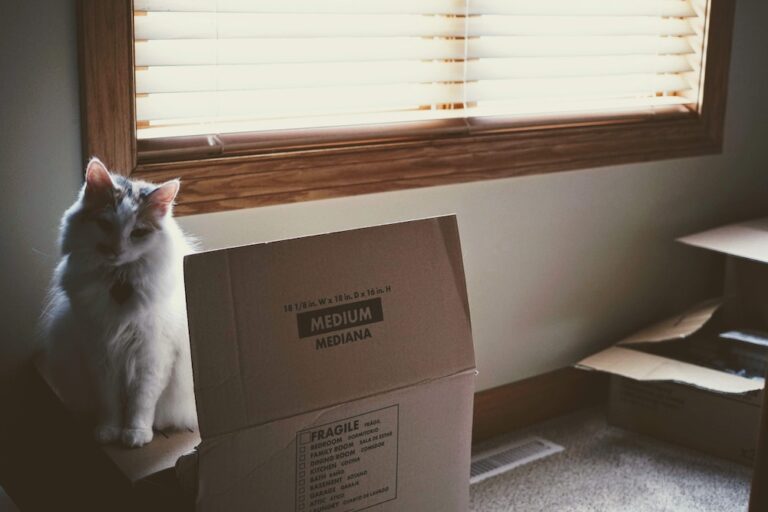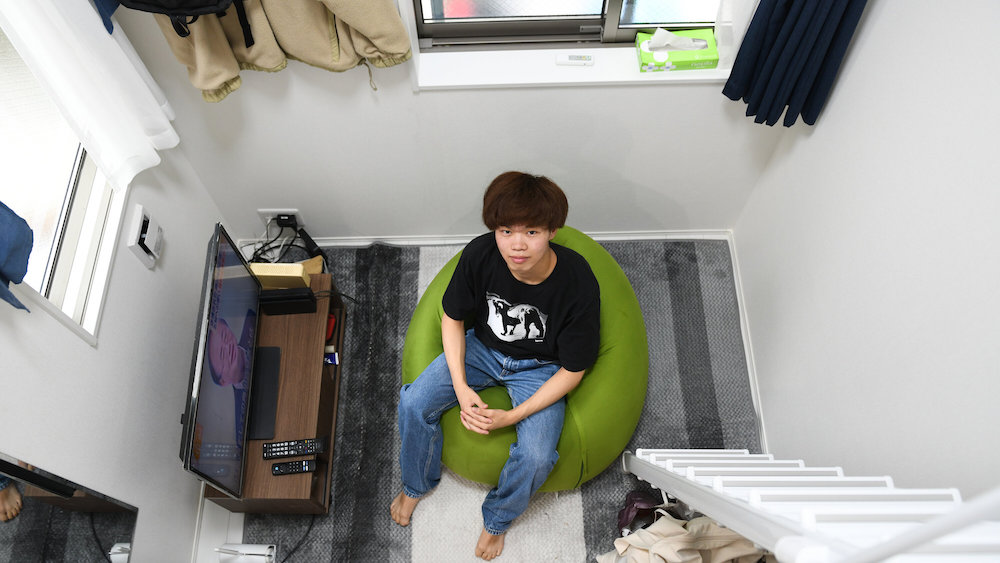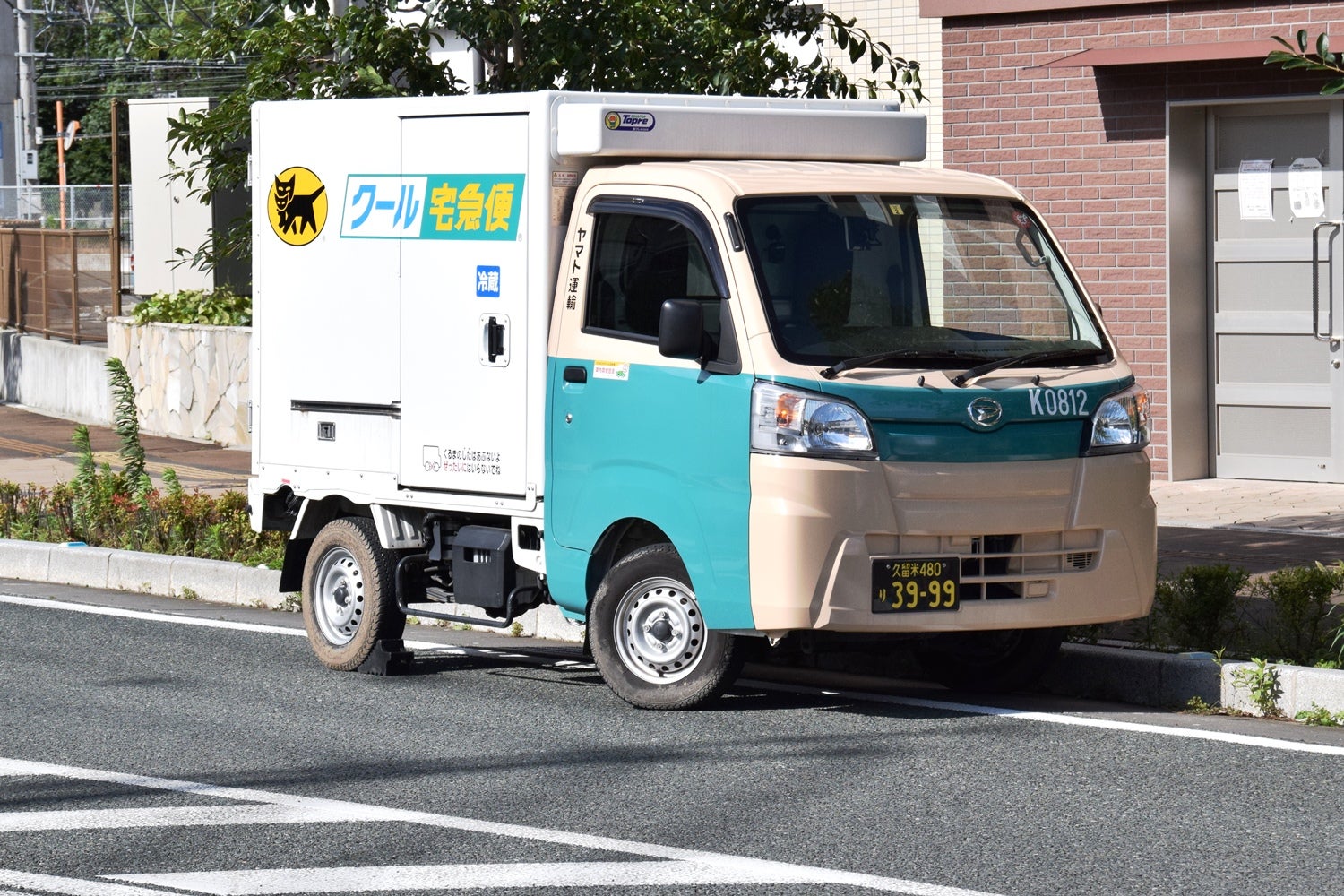
Let’s talk about moving house in Japan. Embarking on a journey to a new home in Japan is an adventure brimming with excitement, but it is also a test of patience, resourcefulness, and cultural understanding. As the urban landscapes of Tokyo, Osaka, and other bustling cities continue to evolve, finding and securing an apartment in this captivating country can be a daunting task for both locals and foreigners alike.
From navigating the intricacies of the rental process to adjusting to unique housing customs, moving apartments in Japan is an experience that unveils a fascinating tapestry of challenges and rewards. Join us as we delve into the peculiarities of this venture, unravelling the layers that encompass the Japanese housing market and offering insights to help you navigate the maze of apartment hunting in this captivating nation.
The General Housing Situation for Foreigners
Foreigners living in Japan have various accommodation options depending on their preferences, budget, and length of stay. One common choice is renting apartments, which can range from small studio apartments, and I mean small, to spacious multi-room units.
In urban areas, such as Tokyo or Osaka, foreigners often find themselves residing in apartments located within residential buildings or complexes. These apartments are equipped with essential amenities like kitchens, bathrooms, and living spaces, providing a comfortable and private living environment. Another popular option for shorter stays or for those seeking a community-oriented experience is guesthouses or share houses. These communal living spaces offer private or shared rooms with shared common areas, allowing residents to interact with fellow foreigners and locals, and fostering cultural exchange and support networks.
When it comes to the average cost of rent in Japan, it varies significantly depending on the location, size, and condition of the accommodation. In major cities like Tokyo, the rental prices tend to be higher compared to more rural or suburban areas. A one-bedroom apartment in Tokyo could range from around ¥100,000 to ¥200,000 per month (approximately $750 to $1,500). Additionally, expenses such as key money (a non-refundable payment to the landlord), security deposits, and agency fees might apply, further affecting the upfront costs of securing an apartment in Japan.
I personally was paying about ¥45,000 yen before bills for a 1LK (one living room and an absolutely tiny kitchen) in Nagasaki. I lived right next to the main bullet train station, so it was a little pricier than other options in town, but compared to London it was an absolute steal. Now though, I pay about ¥55,000 for an older apartment that’s 3X the size in the same location.

What it’s like to live in a Japanese apartment
First and foremost, let’s talk about the size. Get ready to embrace the art of space optimization! Japanese apartments are often compact, making you a master of Tetris as you figure out how to fit your belongings into every nook and cranny. Before I moved into a bigger apartment, I found it so stressful living in a Japanese 1 room apartment. Unless you want to have to put everything you use away before doing something else it’s frustrating.
One thing that Japan has got right though is the toilets. Get ready to acquaint yourself with the magical world of high-tech toilets. These marvels of engineering will surprise and delight you with their heated seats, built-in bidets, and a symphony of buttons offering a range of functions that may require a degree in advanced toiletology to decipher. I’ve found that unless your apartment was built in let’s say the 70’s, you’ll probably have a washlet installed. The dream!
Moving Apartments and Issues for Foreigners
Ending a housing contract in Japan requires careful attention to detail and thorough preparations. When it comes to bidding farewell to your Japanese abode, be prepared for some financial implications. Cleaning fees are commonly charged, and they can vary depending on the size and condition of the apartment. For a 1DK, I paid a non-negotiable ¥20,000. Whilst some people might get lucky and not get charged for cleaning, most Japanese people I’ve spoken to just assume the cleaning fees will be applied no matter what they do.
Apart from cleaning fees, there might be additional deductions from the deposit to cover any damages or repairs beyond normal wear and tear. Now this is an incredibly grey area in Japan. The basic assumption here is that apartments should be returned to the condition you got it in regardless of how long you lived there. This is the bit that annoyed me when I moved. I lived in an apartment for 3 years and was charged for every single scuff, being told that I shouldn’t have damaged the place. I don’t know a human that could go 3 years and leave no mark on a place, but it is what it is. It’s essential to document the condition of the apartment during the move-in inspection and keep a record of any existing damages. Remember to return all provided keys and ensure that utility bills and other outstanding payments are settled before officially terminating the contract.
Finding a new house or apartment to live in Japan requires a combination of online research, estate agent assistance, and thorough planning. One of the most effective ways to start your search is by utilizing real estate websites such as Suumo, Homes, or Athome. These platforms offer comprehensive listings of available properties across Japan, allowing you to filter search results based on location, size, budget, and other preferences. With detailed property descriptions, photos, and sometimes virtual tours, these websites provide a convenient way to explore various options from the comfort of your home.
While online resources are valuable, enlisting the help of a real estate agent, known as “fudosan,” can greatly assist in navigating the Japanese housing market. Local agents have extensive knowledge about the different neighbourhoods, rental processes, and can help negotiate with landlords on your behalf. They can also provide insights into the subtleties of Japanese contracts and assist in overcoming language barriers. When working with a real estate agent, it’s essential to clearly communicate your requirements, budget, and any specific preferences to ensure they can efficiently match you with suitable properties.
Additionally, networking within expat communities or online forums dedicated to foreigners living in Japan can provide valuable tips, recommendations, and first-hand experiences regarding the housing search. Being proactive, organized, and open-minded throughout the process will contribute to a successful and satisfying search for your new home in Japan.
When checking a new apartment in Japan, there are several factors to consider, including specific issues that foreigners might not be aware of. Firstly, inspect the condition of the apartment’s tatami mats, if present. These traditional Japanese straw mats can harbour pests such as mites, so look for signs of wear, stains, or any unpleasant odours. Additionally, check for any signs of water damage on walls and ceilings, as Japan’s humid climate can lead to mould growth. Look closely at bathroom and kitchen areas, ensuring proper ventilation to prevent moisture build-up. Check all the appliances that come with the house too!
Pay attention to noise insulation as well, especially if you’re moving to a densely populated area. Thin walls aren’t uncommon in Japan and believe me when I say people aren’t afraid to call the police over something as normal abroad as playing an acoustic guitar in your own home.
Once you find a place you want to move into in Japan, be prepared for several steps and considerations. Firstly, anticipate a variety of move in fees that are typically required. These may include the “shikikin” (security deposit), which is usually equivalent to one to three months’ rent and is in theory refundable upon the end of the tenancy. Additionally, there may be the “reikin” (key money), a non-refundable gratuity payment to the landlord, typically equivalent to one to two months’ rent. Some properties may also require payment of “chukai tesuryo” (cleaning fee) and “shohizei” (consumption tax) upfront. I haven’t had a friend pay less than ¥200,000 for start-up costs, which is quite a bit.
When signing the lease contract, expect the landlord or agent to read out the contract in its entirety, often in Japanese. This is to ensure that you fully understand the terms and conditions. It is crucial to pay attention to every detail and seek assistance from a reliable interpreter or Japanese-speaking friend if needed. In many cases, a guarantor (“hoshonin”) may be required, who acts as a co-signer responsible for fulfilling financial obligations if the tenant fails to do so. This can be a challenging aspect for foreigners without a guarantor, but there are services available that act as guarantors for a fee.
Furthermore, expect the entire process to be conducted in Japanese, including filling out application forms and writing kanji. Language proficiency is essential, and if you are not confident in your Japanese skills, consider seeking assistance from a bilingual friend or hiring a professional translator to ensure accurate communication and comprehension.

When it comes to moving in Japan, you have a range of specialized companies at your fingertips. For local moves within the same city, “Takyubin” is your go-to choice. They offer reliable door-to-door delivery services, perfect for individuals with fewer belongings or those moving nearby. With tracking systems and flexible delivery options, convenience is guaranteed. If you’re planning a substantial move across the country, “Nittsu” (Nippon Express) and “Yamato Transport” have got you covered.
From packing to unpacking, their comprehensive services make the entire process hassle-free. Need to move internationally? Look no further than “Kokusai Express.” With expertise in customs procedures and international shipping logistics, they’ll handle every aspect of your move, from packing to delivery.
Whether you’re moving within the same city or across the country, these companies provide valuable assistance to simplify the process and ensure the safe arrival of your belongings. It’s recommended to research and compare different providers to find the one that best fits your specific requirements and budget.
Summary
Your life in Japan can be greatly enhanced by living somewhere you like. It’s worth going through the stress of moving to improve every single day you live there. I have done it myself, and know that whilst it’s a lot of stress, it’s improved everything! Do it!




















